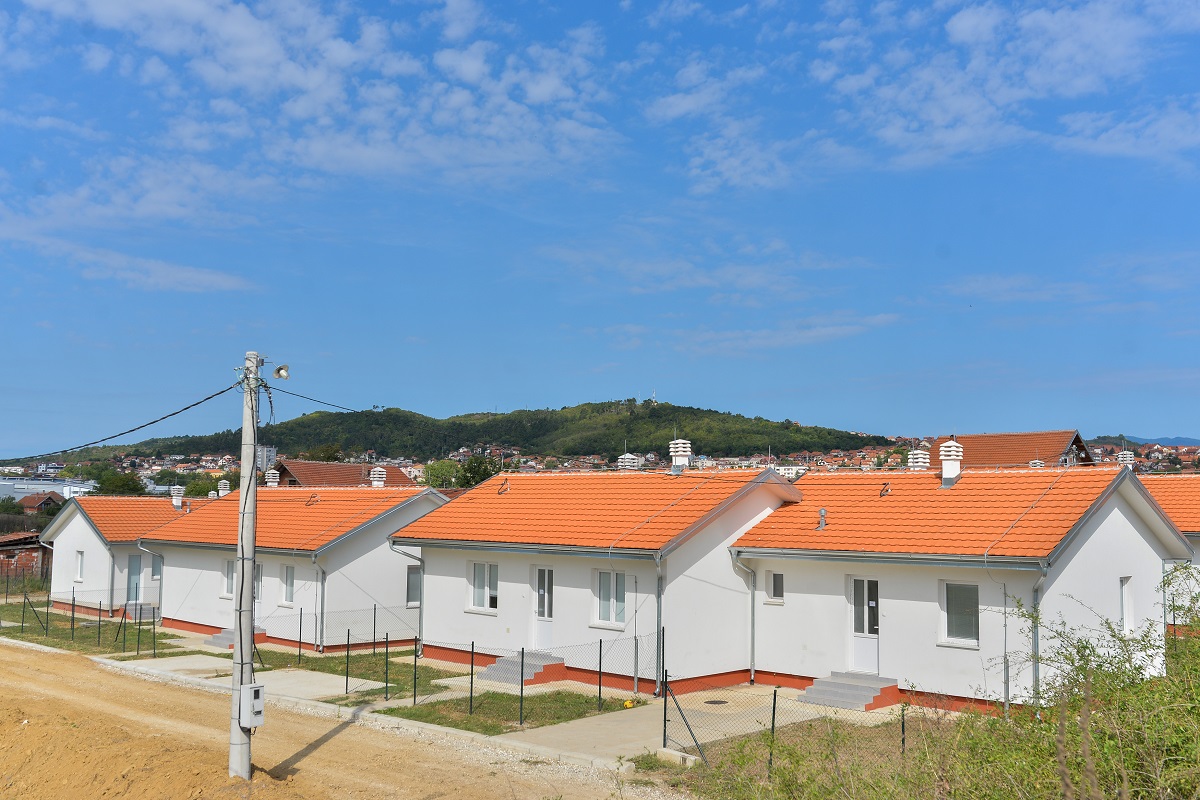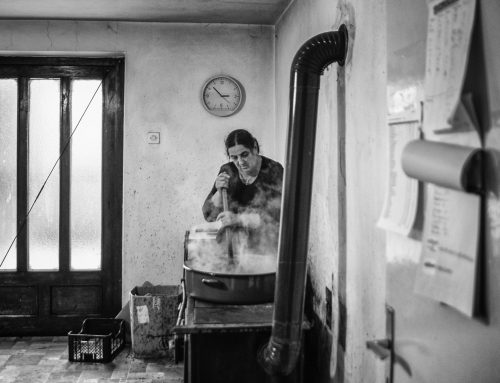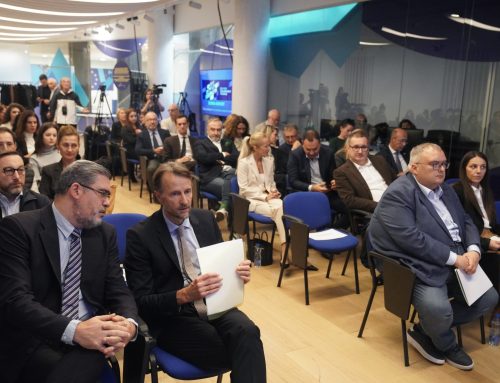12 most vulnerable Roma families from the settlement of Mala Guba in Prokuplje received the keys to new houses that will enable them to live in quality conditions, thanks to the project “Improved living conditions of Roma in Prokuplje” funded by the European Union.
The keys to the new houses were handed over to Roma families by the head of the EU Delegation to Serbia, Ambassador Sem Fabrizi, Serbian Deputy Prime Minister Zorana Mihajlovic, Prokuplje Mayor Milan Arandjelovic and Toplica District Mayor Zlatan Miljkovic.
Ambassador Fabrizi, whose visit to Prokuplje is his first trip outside Belgrade since the pandemic, pointed out on this occasion that inclusion is one of the fundamental values of the EU and reminded that Roma are the largest minority in Europe and that they are the most endangered. That is why support for the Roma is essential. In addition to inclusion, the key points to focus on are fundamental rights, sustainability and partnership.
“Our job is to include the Roma community in society and to work together to solve the problems they face, and the fundamental issues are accommodation, education and employment. Serbia and the European Union have been working for years on Roma inclusion, and the EU has invested 30m euros in Roma inclusion in Serbia. Providing accommodation is the most significant part of our donation, but we also work on education and other topics. Last year alone, 1,000 scholarships were awarded to Roma children. Our strategy regarding the support of Roma is quite broad, “said Ambassador Fabrizi and encouraged everyone in Serbia to continue working in this area because there is still work to be done, and the EU is undoubtedly on the side of the Roma community.
Serbian Deputy Prime Minister Zorana Mihajlovic congratulated the families who received apartments in the Mala Guba settlement.
“In the previous two years, together with the European Union, which is not only our support but also finances most of the projects for the inclusion of Roma men and women, we have built apartments for more than 200 families that have solved their housing issue. We must work together, the Government of Serbia, local self-governments, the EU – to do everything we can to make living conditions equal for all, “said Serbian Deputy Prime Minister Zorana Mihajlovic.
“This is a large project supported by the EU and the Ministry of Construction, Transport and Infrastructure. Of the 68 people who will be accommodated in these new facilities in Mala Guba, 45 will be children, which is very important, “said the mayor of Prokuplje, Milan Arandjelovic, thanking the EU Delegation and the Serbian government for their interest in the Roma national minority in Prokuplje.
The President of the National Council for Roma, Dalibor Nakić, states that this project is of great importance for the Roma in Prokuplje.
“It seems that the light is slowly but surely visible at the end of the tunnel from which the Roma community has been trying to get out for decades. We are citizens of our beautiful Serbia, but we are also Europeans, so we appreciate the efforts of the European Union to improve the position of Roma in Serbia, and we expect that support for Roma integration will continue in the coming period, “added Dalibor Nakic.
Since mid-1999, almost three hundred internally displaced Roma have lived in temporary substandard or informal facilities in settlement of Mala Guba on the outskirts of the City of Prokuplje. The Roma community in this settlement has been facing the problem of flooding the Toplica River for years, so in the floods of 2014 and 2016, members of this community were left without a roof over their heads that the river took with it. In order to help Roma living in this settlement, in 2017, the City of Prokuplje, with the financial support of the European Union, launched the project Improved Living Conditions of Roma in Prokuplje.
Project Improved Living for Prokuplje Roma is implemented in cooperation with the Ministry of Construction, Transport, and Infrastructure and the Ministry of Finance, Department for Contracting and Financing of European Union-Funded Projects, through the programme Durable housing solutions and physical infrastructure improvements in Roma settlements. The programme was funded by the European Union and the Republic of Serbia with EUR9.5 million and EUR1.5 million, respectively.
The European Union has thus far invested over EUR30 million in Roma inclusion projects, implemented in cooperation with the Government of the Republic of Serbia, local self-governments, and civil society organisations. Thanks to EU support, the number of entries in the birth registry has increased, access to fundamental rights has been improved thanks to newly established mobile units, while the provision of grants has helped to strengthen Roma civil society. Also, specific activities have been carried out with the goal to improve the housing situation of the Roma community in several towns and municipalities in Serbia; find the most appropriate employment models for Roma; while special attention was paid to achieving permanent inclusion of Roma students in high schools. Since 2011, the European Commission has organised seminars dedicated to the social inclusion of Roma and the improvement of their status.




